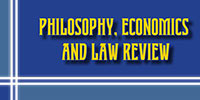Oleksandr KRASILSHCHIKOV
KRASILSHCHIKOV O. (2023), TALENT DEVELOPMENT: HISTORY AND PHILOSOPHY OF THE MODELS RELEVANT TO HIGH-PERFORMANCE SPORT. PHILOSOPHY, ECONOMICS AND LAW REVIEW. Volume 3, no. 1, 81-90
DOI: 10.31733/2786-491X-2023-1-81-90
ABSTRACT. The article deals with the actual issues of talent development in high performance sport. Talent development is a complex process that involves a combination of genetics and environment. Long-Term Athlete Development Models have contributed to talent development research and generalizations, while Bloom et al.’s study of advanced talent development has laid the foundation for talent development philosophy. Ericsson’s Notion of Deliberate Practice emphasizes the importance of the amount of deliberate practice as a significant determinant of expertise attained. Experts invest more hours of practice per week compared to novices and start engaging in deliberate practice at younger ages.
However, it is impossible for individuals with less accumulated practice at a given age to catch up with those who started deliberate practice earlier and maintained optimal levels of practice. Overall, talent development remains a topic of discussion for centuries and requires a combination of genetic predisposition and environmental factors to attain excellence.
Implementing Pre-Detection and Post-Detection procedures in talent development can lead to critical outcomes. Providing quality physical education and regular practice opportunities in schools can increase the number of physically advanced children, leading to more potential talent to be identified and developed by coaches.
Keywords: talent development, high-performance sport, athlete development models, pre-detection and post-detection procedures.
References
- Bailey, R., Morley, D. & Dismore, H. (2009). Talent development in physical education: a national survey of policy and practice in England. Physical Education and Sport Pedagogy, 14 (1), pp. 59-72.
- Bailey, R.P., B. Tan, and D. Morley. (2004). Secondary school teachers’ perceptions of identifying talented pupils in physical education. Physical Education and Sport Pedagogy, 9 (3), pp. 133-48.
- Balyi, I. (2005). Canadian Sport Centres. Long-Term Athlete Development – Canadian Sport for Life. Vancouver, 2005.
- Balyi, I. (2006). Athletics Canada. Long Term Athlete Development, 2006.
- Bloom, B. S. (1985). Developing talent in young people. Ballantine.
- Bompa, T. O. (1994). Theory and Methodology of Training (3rd ed.). Iowa: Kendall/Hunt.
- Cote, J., & Hay, J. (2002). Children’s involvement in sport: A developmental perspective. In Psychological Foundations of Sport (Edited by J.M. Silva and D. Stevens), Boston: Merrill,.pp. 484-502.
- Earle, C. A. (1997). Framework for the Development of Gifted and Talented Sportspeople in Schools. FHS, 1997.
- Ericsson, K.A., & Charness, N. (1994). Expert performance: Its structure and acquisition. American Psychologist, 49, pp. 725-47.
- Harre, D., (1971). The Doctrine of Training. M., Physical Culture & Sport Publishers, 1971. [in russ.].
- Krasilshchikov, O. (2011). Talent Recognition and Development: Elaborating on a Principle Model. International Journal of Developmental Sport Management, 1 (1), pp. 1-11.
- Krasilshchikov, O. (2013). Talent Identification and Development: Reassessing the Principle Model. Acta Facultatis Educationis. Physicae Universitatis Comenianae, 51 (1), pp. 25-32.
- Platonov, V., (1984). Theory and Methodology of Sport Training. Kiev, Higher Education Publishers, 1984. [in russ.].
- Singh, Hardayal, (1991). Science of Sports Training, DVS Publ., New Delhi, 1991.
- Wolstencroft, E., (Ed.), (2002). Talent Identification and Development: An Academic Review. A report for Sport Scotland by The University of Edinburgh.
